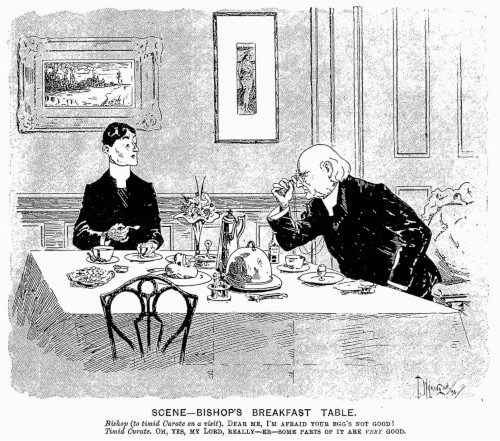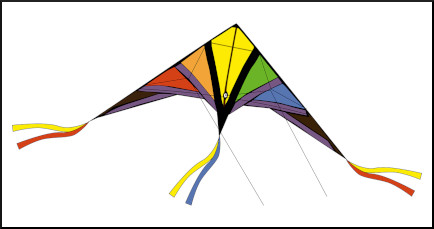Punch Magazine? Judy Magazine? Anonymous?

Question for Quote Investigator: A famous one-panel comic shows a lowly curate who is visiting the house of a powerful bishop for breakfast. The bishop notices that the curate has unfortunately been served a spoiled egg, and the curate’s response is overly polite and deferential. Here are two versions:
- My lord, really, some parts of it are very good.
- My lord, I assure you that parts of it are excellent.
A spoiled egg is typically thrown away and not eaten. It is viewed as entirely bad. Nevertheless, the meaning of the term “curate’s egg” has shifted over time. It is used figuratively to refer to something which has a mixture of positive and negative attributes. It is both good and bad. Would you please explore this topic?
Reply from Quote Investigator: This joke is usually traced to a cartoon published in the humor magazine “Punch” on November 9, 1895, and that cartoon is shown further below; however, the origin can actually be traced to an earlier time.
A precursor anecdote without a cartoon illustration appeared in “The Academy” journal in 1875. The creator of the story was unidentified, and the punchline was a bit different. Also, it did not include the claim that parts of the egg were good. Emphasis added to excerpts by QI:1
Without pledging our credence, we could afford a grin to the story of the “young Levite” who at a bishop’s breakfast-table, was so ‘umble as to decline the replacement of a bad egg by a good one with a “No thank you, my Lord, it’s good enough for me;” . . .
On May 22, 1895 “Judy: The London Serio-Comic Journal” published a cartoon with a bishop and curate. This is the first close match located by QI:2

SCENE—BISHOP’S BREAKFAST TABLE.
Bishop (to timid Curate on a visit). DEAR ME, I’M AFRAID YOUR EGG’S NOT GOOD!
Timid Curate. OH, YES, MY LORD, REALLY-ER-SOME PARTS OF IT ARE VERY GOOD.
Below are additional selected citations in chronological order.
Continue reading “Quote Origin: The Curate’s Egg: Parts of It Are Excellent”







